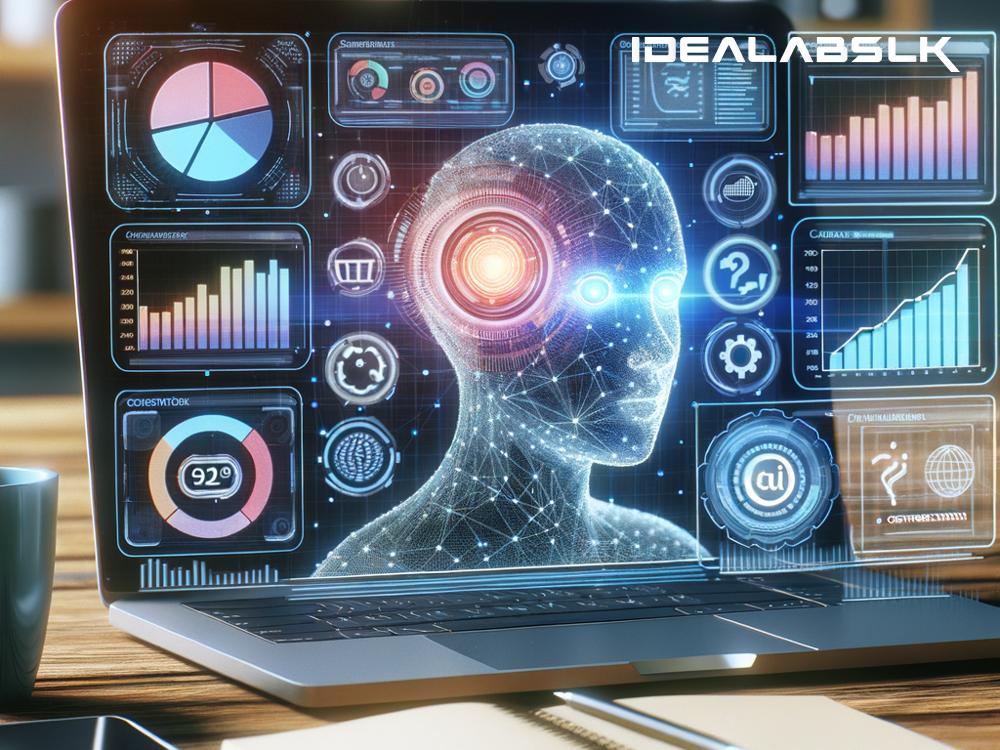In the fast-paced digital marketing world, standing out and grabbing the attention of potential customers is crucial. That's where conversion rate optimization (CRO) comes into play. CRO is all about making your website or online store as effective as possible at turning visitors into paying customers. It's like having a welcoming, persuasive shop assistant who knows just what to say to make someone decide to buy. But as you can imagine, figuring out the best way to do this can be pretty tricky. That's where artificial intelligence (AI) steps in, offering new tools and methods to supercharge CRO efforts. Let's dive into how AI-powered tools are reshaping the way digital marketers optimize for better conversion rates.
Understanding the Basics: CRO and AI
Before we get into the details, let's break down the basics. Conversion rate optimization is all about tweaking and testing various elements of your online platforms—be it your website, social media, or email campaigns—to increase the percentage of visitors who take the desired action (like making a purchase, signing up for a newsletter, or filling out a contact form).
On the other side, we have AI, a technological marvel that mimics human intelligence, learning from data to make predictions, automate tasks, and improve over time. When AI is applied to CRO, the magic really starts to happen.
How AI is Changing the Game
1. Personalization at Scale
One of the key strengths of AI is handling vast amounts of data quickly and efficiently. This capability allows digital marketers to offer highly personalized experiences to visitors. Imagine walking into a store where the salesperson knows your name, preferences, and history with the brand. That's what AI can do for online experiences. By analyzing data on how individual users interact with a site, AI-powered tools can adjust the content, recommendations, and offers in real-time, making each visitor feel like the website was designed just for them, which significantly boosts conversion rates.
2. Predictive Analytics
AI excels at spotting patterns and predicting outcomes. In terms of CRO, this means it can predict which website visitors are most likely to convert, what kind of products they might be interested in, or even when they're likely to make a purchase. This insight allows marketers to tailor their efforts more specifically, focusing resources and attention where it's most likely to pay off.
3. Enhanced User Experience (UX) Design
A website that's easy and enjoyable to use is more likely to convert visitors into customers. AI-powered tools can analyze how users interact with a site, identifying pain points and friction areas that may be causing people to leave without converting. Automated A/B testing—comparing two versions of a web page to see which performs better—can be handled more efficiently with AI, allowing for rapid iteration and improvement. Additionally, chatbots powered by AI can provide instant assistance, answering questions, and guiding users, further enhancing the user experience.
4. More Effective Ad Targeting
AI isn't just about optimizing websites; it also makes advertising more effective. By analyzing data on who is most likely to be interested in a product or service, AI can help ensure that ads are shown only to those potential customers, making each marketing dollar go further. Plus, AI can continuously learn and adjust campaigns in real-time, responding to how people interact with ads to improve performance over time.
The Future of AI in CRO
As AI technology continues to advance, its applications within digital marketing and CRO will only grow. We can expect even more personalized and engaging online experiences, smarter analytics, and automation that saves time and boosts efficiency. However, it's important for marketers to remember that AI is a tool, not a replacement for human creativity and intuition. The most successful digital marketing strategies will likely be those that use AI to amplify human talents, not replace them.
Conclusion
AI-powered tools are revolutionizing conversion rate optimization, offering unprecedented opportunities for personalization, prediction, and efficiency. By harnessing these capabilities, digital marketers can create more compelling, user-friendly, and effective online experiences that drive conversions. As we look to the future, the integration of AI into digital marketing strategies promises to make the digital marketplace more dynamic, competitive, and rewarding for businesses and consumers alike.

